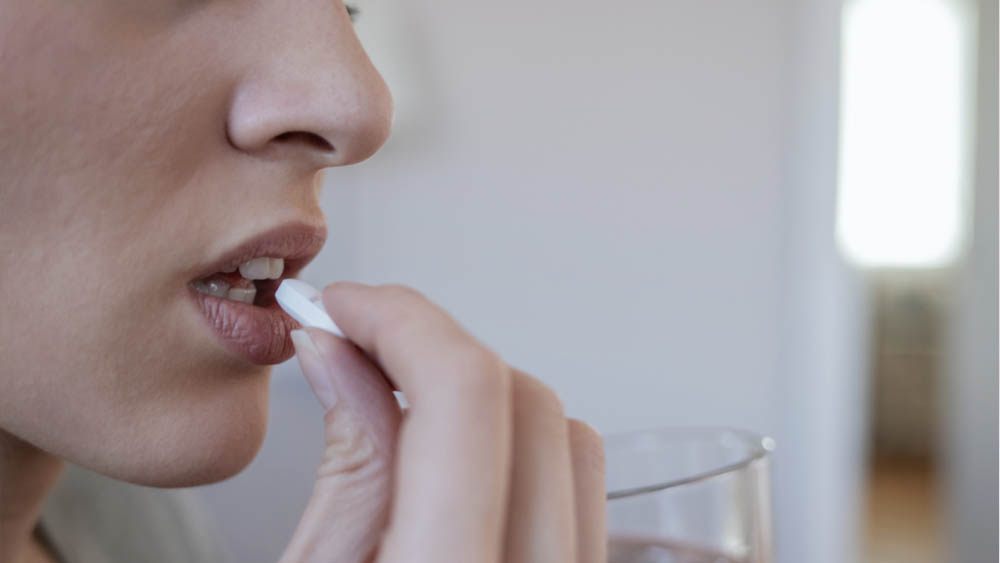DHEA and Depression: What You Need to Know
GET DIAGNOSED
Share on facebook
Facebook
Share on twitter
Twitter
Share on linkedin
LinkedIn
According to a report by Johns Hopkins, 9.5% of U. S. adults aged 18 and over suffer from depression and its debilitating effects. That’s a disconcerting amount of people trying to beat the blues on a daily basis. Hormone and research specialists have discovered the lesser-known DHEA hormone has a proven, positive effect on those riddled with the mental health disorder.
Don’t underestimate the power of the body’s arsenal of hormones. Hormones are often associated with the rise and fall of one’s libido, yet these hardworking chemical substances play imperative roles in the optimal physiology of the body. If there is even a slight imbalance in the production of one’s hormones, the domino effect can potentially be disastrous – and not just physically. DHEA (Dehydroepiandrosterone) is a natural steroid produced in the adrenal glands, reproductive organs, and brain and is the most plentiful, circulating steroid in humans. For decades, DHEA has been associated with reducing abdominal adipose tissue, improving insulin sensitivity, increasing bone density, boosting energy, and enhancing overall well-being. Natural DHEA helps produce other hormones, including the well-known sex hormones, testosterone and estrogen, and levels peak in early adulthood and decline with age. In fact, by the time an individual has reached 70 years of age, their body is hardly producing any DHEA, which can lead to a variety of adrenal and pituitary gland disorders. Synthetic versions of DHEA are widely used as an effective anti-aging strategy and help boost physical performance, improve sexual function, ease menopausal symptoms, and treat depression.
Do I Have Low DHEA? Symptoms to Look For
A landmark study reported lower DHEA levels were associated with poor mental health. Those who developed depression had 19% lower DHEA levels than those who didn’t. If you think you may be suffering from low levels of DHEA, there are definitive clues you should look out for, such as:
- Decreased sex drive
- Erectile dysfunction
- Vaginal atrophy
- Unexplained weight loss
- Nausea/vomiting
DHEA, specifically, plays an integral role in its relationship to the stress hormone cortisol. Also released by the adrenal gland, cortisol is regulated by DHEA. Regulation of cortisol by DHEA may suggest brain neuroprotection or neurogenesis. However, evidence shows episodes of depression and unceremonious mood disorders develop when chronically high levels of cortisol are sustained. A breakthrough study comprised of 46 patients aged 40-65 showed 50% of the participants who consumed DHEA demonstrated an unequivocal decline in their depression symptoms. Ten patients even volunteered to continue their DHEA therapy and were happy to report they remained depression-free for up to a year without concerning side effects. Another groundbreaking study revealed “short-term” treatment with DHEA might be effective for some patients with mild to moderate depression who don’t respond favorably to standardized treatments or who cannot tolerate traditional, anti-depressant medications.
Taking Hormonal Matters into Your Own Hands
Ideally, premenopausal and menopausal women greatly benefit from having both their ovarian hormones (estrogen, progesterone, testosterone), as well as adrenal hormones (DHEA and cortisol) regularly assessed to rule out any imbalances. Monitoring and managing hormonal levels periodically can help exponentially reduce the risk of developing chronic disorders, including depression.
Source
If you feel you may benefit from lipedema revision surgery and would like to book a consultation with Dr. Jamie Schwartz to evaluate your current physical situation, as well as your medical and lipedema surgical history, be sure to contact our office to speak with any one of our compassionate, highly-knowledgeable staff members. We look forward to hearing from you and we’re always here to help.
References:
Schmidt PJ, et al. “Dehydroepiandrosterone Monotherapy in Midlife-Onset Major and Minor Depression,” Archives of General Psychiatry (February 2005): Vol. 62, No. 2, pp. 154–62.
“In brief: DHEA for depression,” Harvard Health Publishing. 2014, Mar.
Souza-Teodoro L, de Oliveira C, Walters K, Carvalho L, et al. Higher serum dehydroepiandrosterone sulfate protects against the onset of depression in the elderly: Findings from the English Longitudinal Study of Aging (ELSA). Psychoneuroendocrinology. 2016, Feb.
If you feel you may benefit from lipedema revision surgery and would like to book a consultation with Dr. Jamie Schwartz to evaluate your current physical situation, as well as your medical and lipedema surgical history, be sure to contact our office to speak with any one of our compassionate, highly-knowledgeable staff members. We look forward to hearing from you and we’re always here to help.

